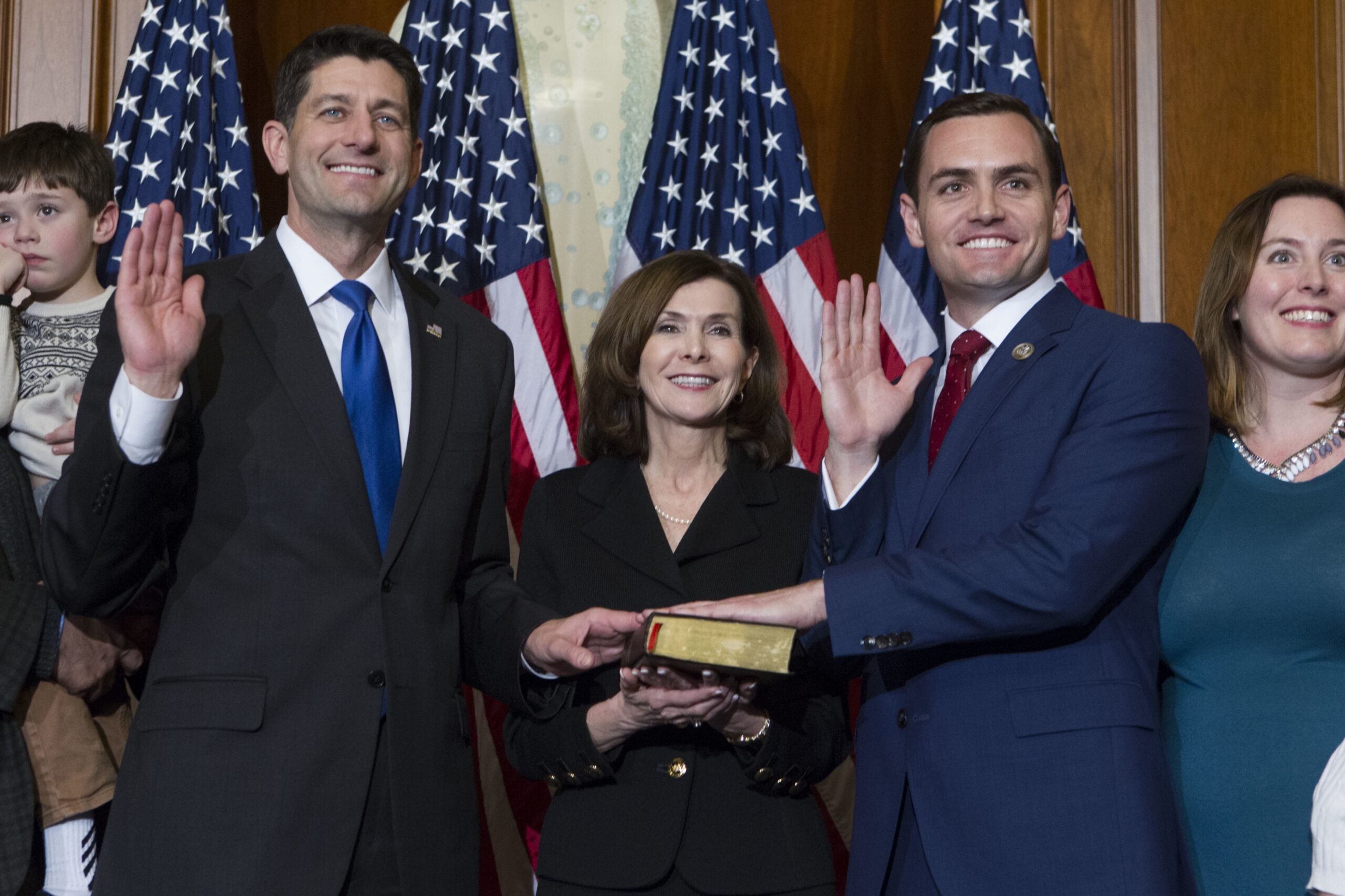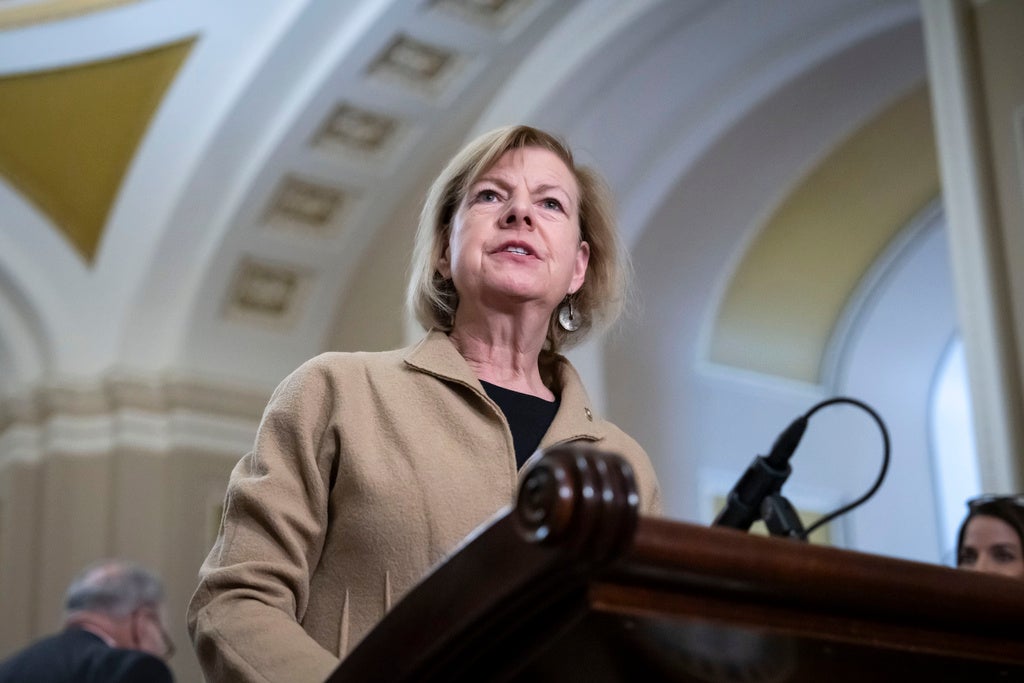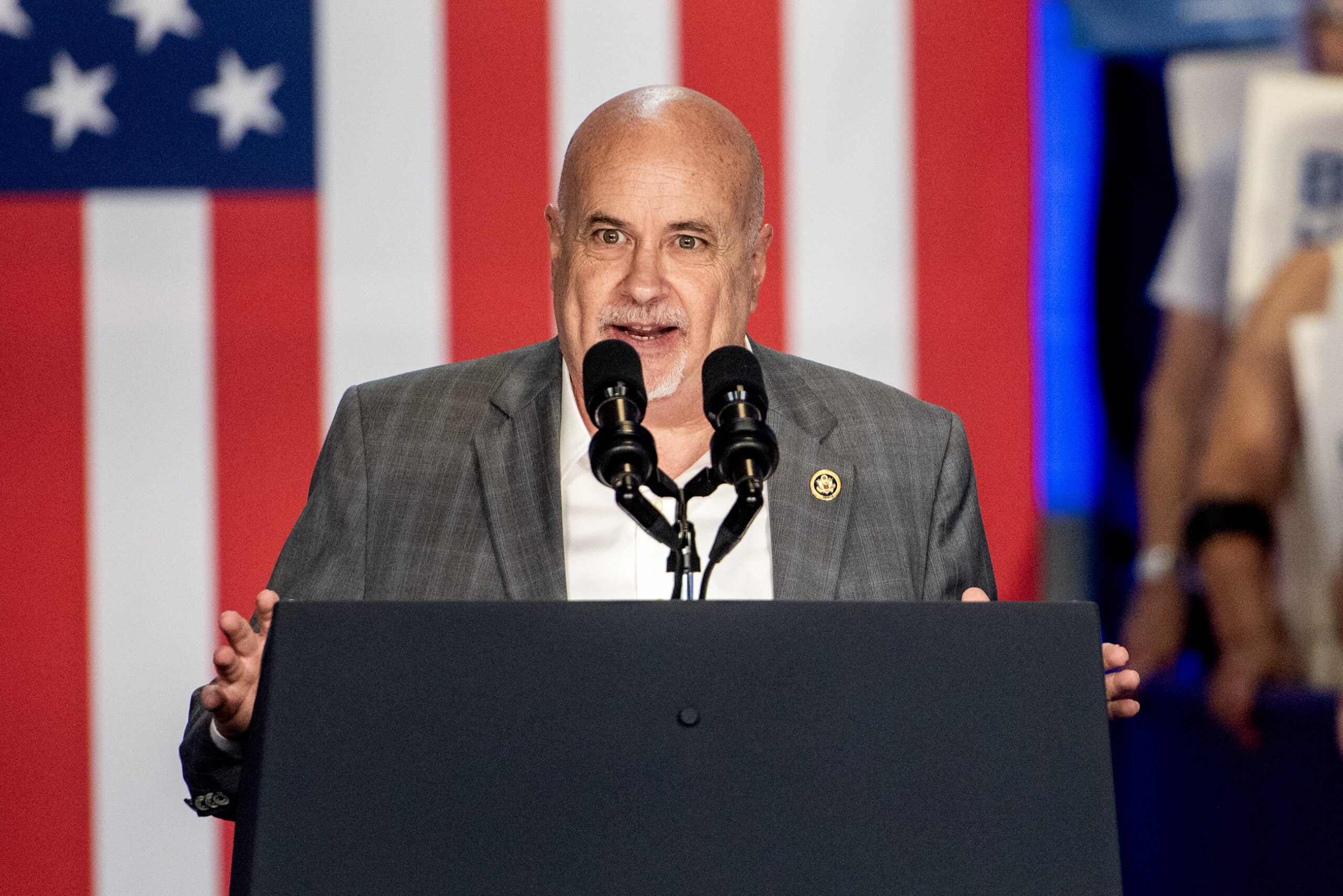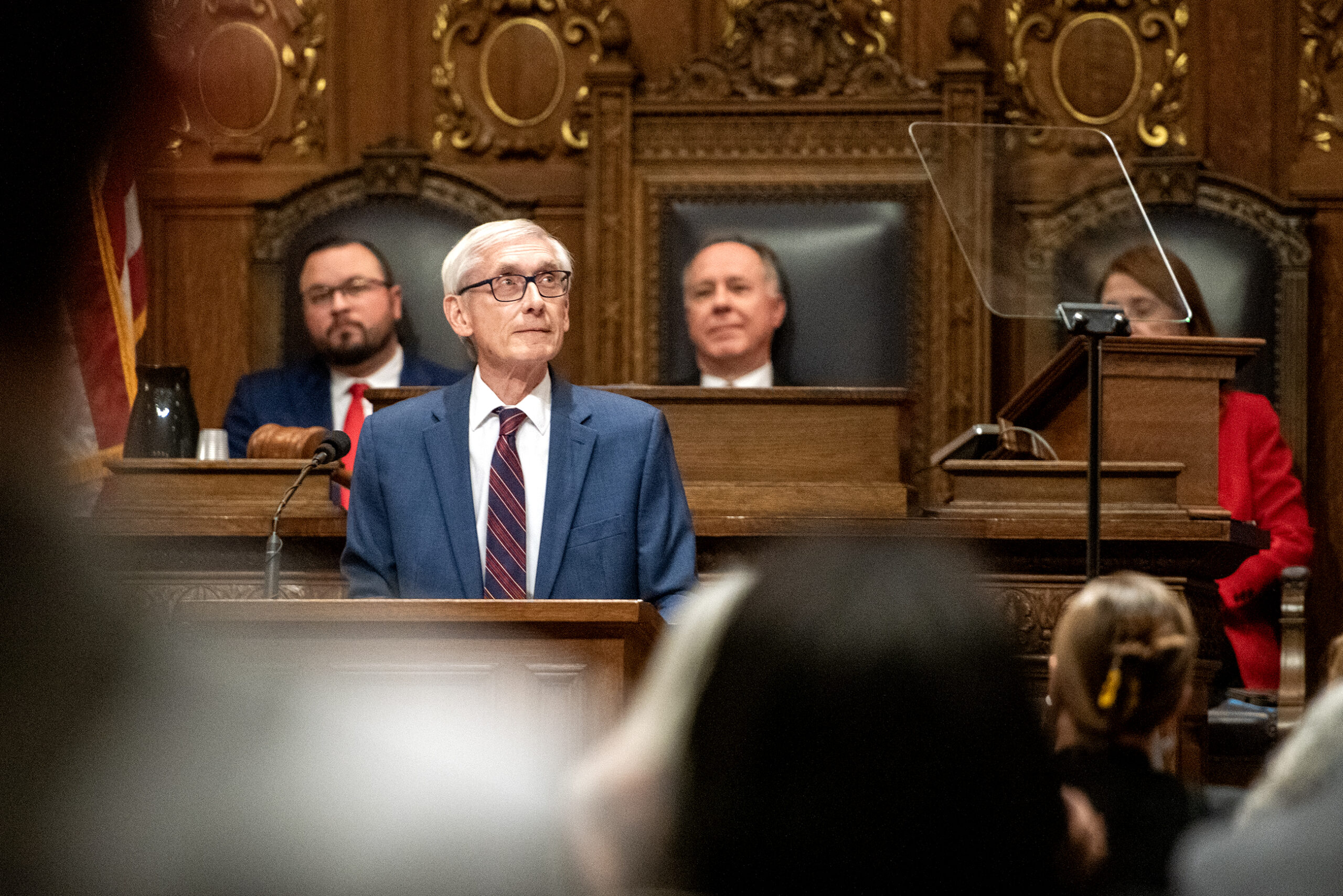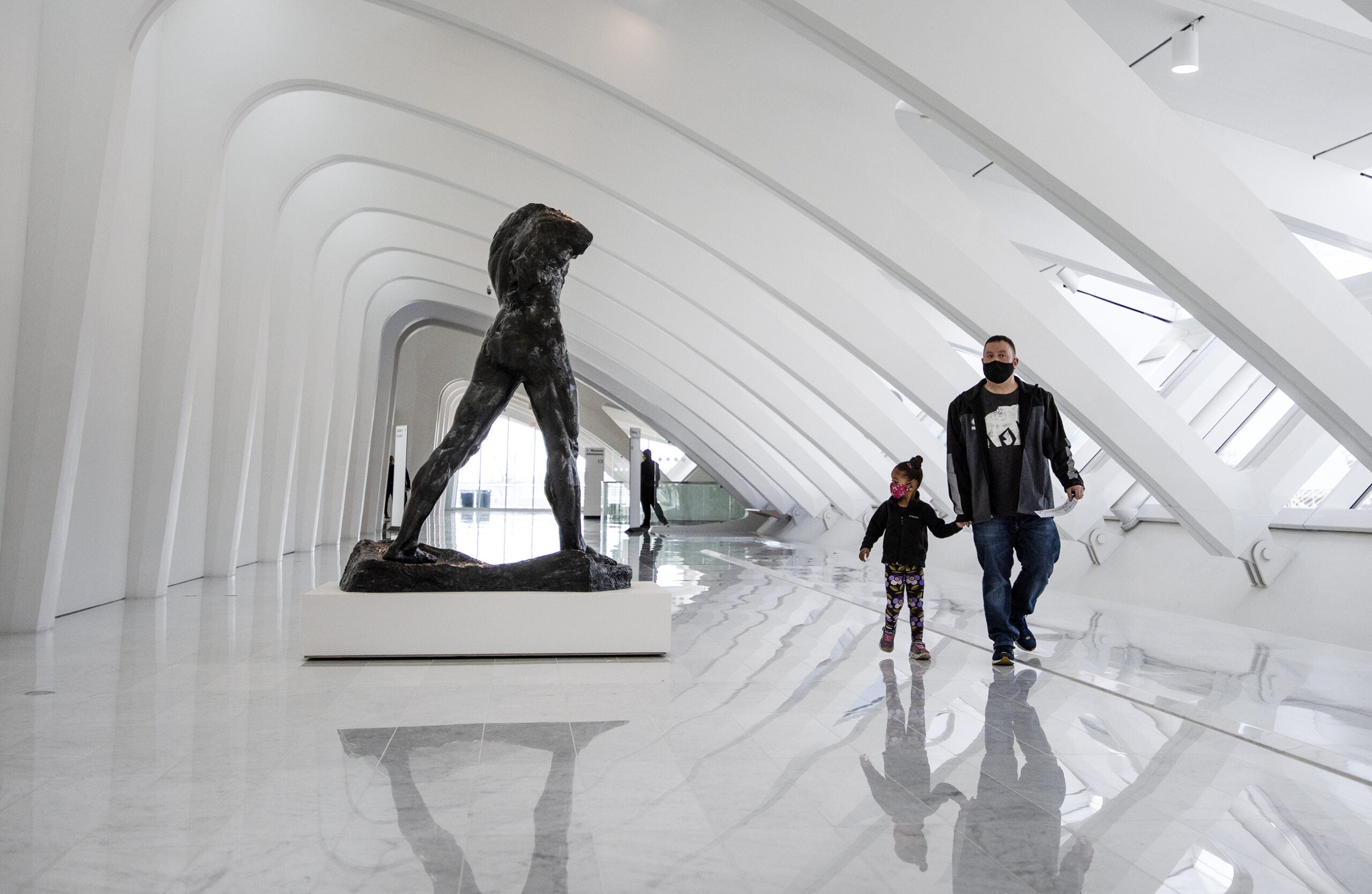U.S. Rep. Mike Gallagher, R-Green Bay, said Congress should be back in session now to spend the $134 billion in the Paycheck Program Program (PPP) to help American businesses stressed by the coronavirus.
In an interview on “The Morning Show” with host Kate Archer Kent, Gallagher said protections should also be put in place for small businesses against lawsuits that target them for trying to reopen.
Gallagher is running as an incumbent against state Rep. Amanda Stuck, D-Appleton, for the 8th Congressional District seat in the Nov. 3 election. The district covers the northeastern part of the state, including Green Bay, Appleton and the Fox Valley.
News with a little more humanity
WPR’s “Wisconsin Today” newsletter keeps you connected to the state you love without feeling overwhelmed. No paywall. No agenda. No corporate filter.
This interview has been edited for brevity and clarity.
Kate Archer Kent: Well, amid the pandemic here, what tops your to-do list?
Mike Gallagher: Well, obviously, the immediate priority is getting us safely out of this pandemic. And I would go further and say ensuring this never happens again. We need to learn the right lessons from dealing with this virus, which in my mind means rebuilding strategic stockpiles of lifesaving equipment at the state level, modernizing our public health system, and investing in research and development so we can lead the world in medical innovation.
The second thing I’d say is this crisis has exposed our need for improvements in telehealth capabilities, which are particularly important for the rural areas in northeast Wisconsin. And I think we have an opportunity to become a world leader in effective telehealth services, which means at the federal level, we need to make the coronavirus telehealth waivers permanent. And we need to get the reimbursement rates right. And this is a great way to provide care while also controlling costs over the long term.
The final thing I’d say is that we need to recognize that our economy has become dangerously dependent on foreign countries in general and the Chinese Communist Party in particular. We need to bring that manufacturing of life-saving drugs, medical devices and national security related technology back home to Wisconsin so that we’re never again dependent on a hostile foreign power in a time of crisis.
KAK: The counties that you represent have some of the highest rates of COVID-19 infections in Wisconsin. What actions do you want the federal government to take to get the virus under control here in Wisconsin?
MG: We need to take this spike seriously. And I think every Wisconsinite needs to do what they can to slow the spread and make sure that our hospital system does not get overwhelmed. Simple things, like washing your hands, social distancing, avoiding large gatherings where you can and wearing a mask where it’s appropriate. We’re going to need individual resilience from all of our citizens.
At the federal level, I think we need to make sure we continue to provide support to the health care system, which has really just been through a crucible in the last few months.
It’s also important to provide an economic lifeline so that our small businesses in northeast Wisconsin can continue to safely reopen. We need to give them some help to weather this crisis.
KAK: Your region has lost more than 10,000 jobs over the last year. What should Congress do to help the economy specifically, both nationally, but right there in your district?
MG: I don’t understand why we went into recess for the entire month of October. We’re not scheduled to be back until mid-November. And I’ve called in a bipartisan group with my Democratic colleagues on Speaker Nancy Pelosi to immediately bring us back into session.
One thing we can do is extend the over $134 billion in PPP loans for small businesses that need that help right now. That money’s already been allocated, and we can get it out the door, and we can make businesses, restaurants and others who aren’t eligible for it, eligible. And that’s a way to get them through this hopefully temporary surge that we’re seeing in northeast Wisconsin.
Also, I think there should be wide forgiveness for the loans in the crisis and taxable forgiveness as we go forward. I’ve worked with the Treasury Department in order to ensure that they are taking an adequate account of the economic stress that these businesses have been under. And certainly that was the intent at the beginning of the program: to provide these businesses a way to pay their employees.
Now, if that money was used for an investment, and they were able to recoup the investment, obviously I think our businesses would be happy to pay that money back.
But I just think we need to be in this crisis right now, understanding that we had to take extraordinary measures to help keep these businesses afloat. And we shouldn’t be punishing them on the backend for trying to do the right thing.
How should we approach education during the pandemic?
MG: I know this is a very difficult decision. And I do believe ultimately it’s a district-by-district decision. But in terms of following the science, the Centers for Disease Control has been increasingly clear that the long-term effects of keeping kids out of school, and the limitations of doing totally distanced and digital learning will affect kids negatively in the forms of mental health issues and physical health issues.
I think we need to be doing everything possible to find a way, particularly for our young kids, to be able to send their kids to school in person. And if that requires more support in the form of PPE (personal protective equipment), I am more than willing to support that.
Wisconsin Public Radio, © Copyright 2026, Board of Regents of the University of Wisconsin System and Wisconsin Educational Communications Board.

